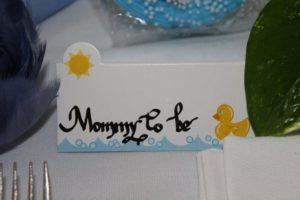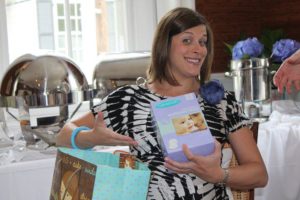According to the Office on Women’s Health “When you breastfeed, you give your baby a healthy start that lasts a lifetime. Breastmilk is the perfect food for your baby. Breastfeeding saves lives, money, and time.” WOW…that’s pretty exciting!

As we continue to celebrate National Breastfeeding Awareness Month (#NBM18), this week, Dr. Bess Milliron, the Medical Director for the Breastfeeding Center of Charleston, shares her top 10 breastfeeding supplies needed for successful breastfeeding. Mama, now is the perfect time to add these to your registry!

Top 10 Breastfeeding Supplies
- At least two supportive nursing bras (without underwire) for daytime.
- Nighttime nursing bra.
- Coconut oil or nipple butter to use for nipple soothing.
- Pajamas or tops with easy access to breasts.
- Breast pads (cloth preferred).
- Supportive breastfeeding pillow, (we recommend My Breast Friend.)
- Double electric breast pump.
- Breastfeeding Tracking App.
- Hands-free pumping bra.
- Steam Sterilizer Bags.
On our next blog post “How to Prepare for Breastfeeding Part 3,” we will conclude our three-part series with Dr. Milliron’s 13 Tips for Breastfeeding Success in The 4th Trimester…
Dr. Bess Milliron MD, FAAP, IBCLC, is Board Certified in Pediatrics, a Fellow of The American Academy of Pediatrics, an International Board Certified Lactation Consultant (IBCLC) and is the Medical Director for the Breastfeeding Center of Charleston.
The Breastfeeding Center of Charleston “believes the health of the mother and her newborn are intricately intertwined. For this reason, we will be providing comprehensive, coordinated care to the mother and baby as a unit at the Breastfeeding Center of Charleston. Comprehensive care includes exams for the both the mother and baby to ensure optimal health for the breastfeeding duo. Our team will work closely with the mother’s OBGYN and the baby’s primary pediatrician to provide continuity of care for the breastfeeding duo. We will communicate the plan of care that is rendered at each visit back to the primary providers.”
For more information on breastfeeding, contact your local hospital, breastfeeding center or the Breastfeeding Center of Charleston today.
Certainly, the longer the separation between the nursing mother and child, the more difficult it is to maintain a full milk supply. In general, separation of a week or less usually poses no major problem for a mother wishing to maintain breastfeeding during separation from her child. This duration becomes more flexible and can be maintained for a longer period of time as the child grows older and complementary foods play a greater role in the child s diet. In many cases, after returning from travel, a nursing infant or child will help bring her milk supply to its prior level.